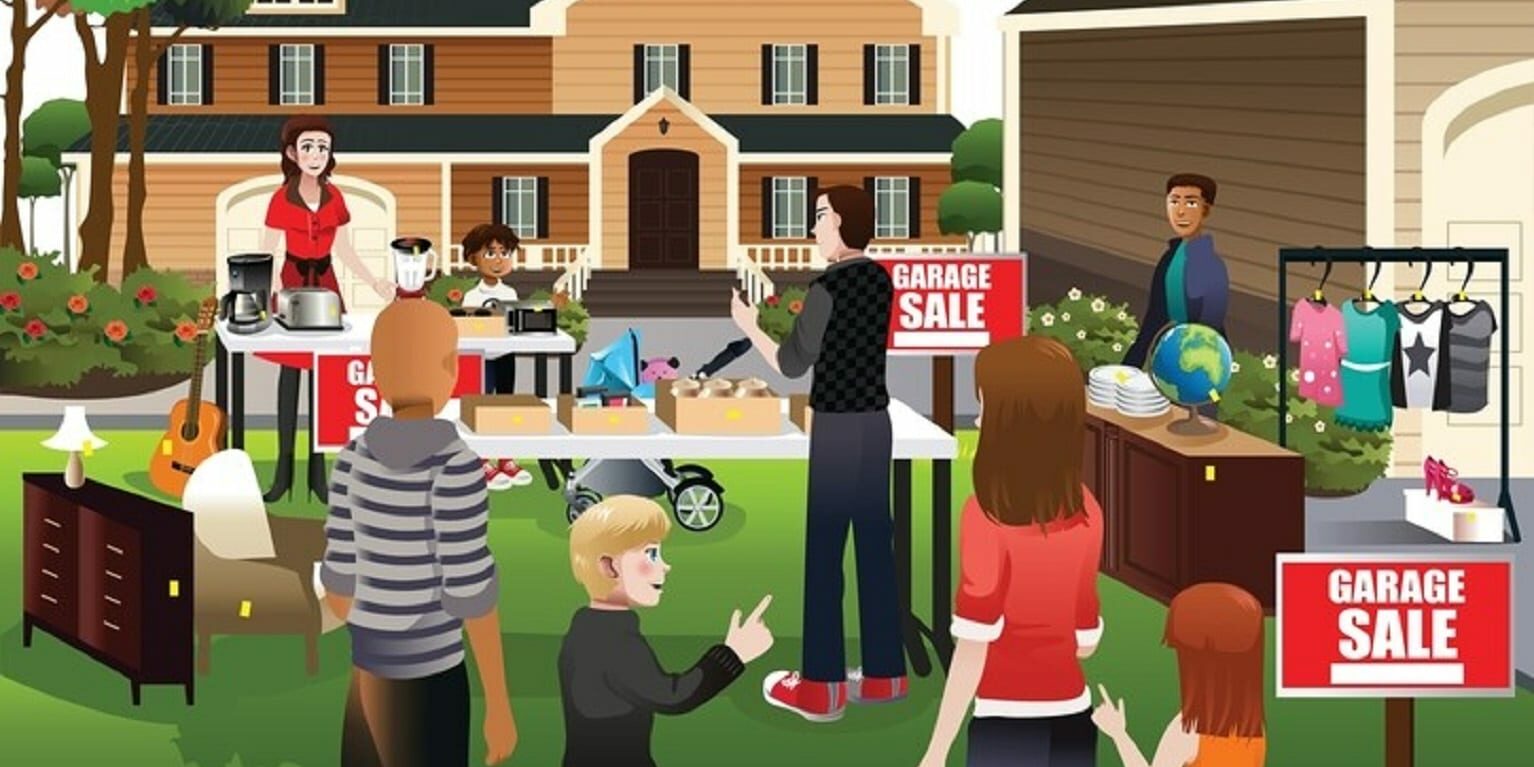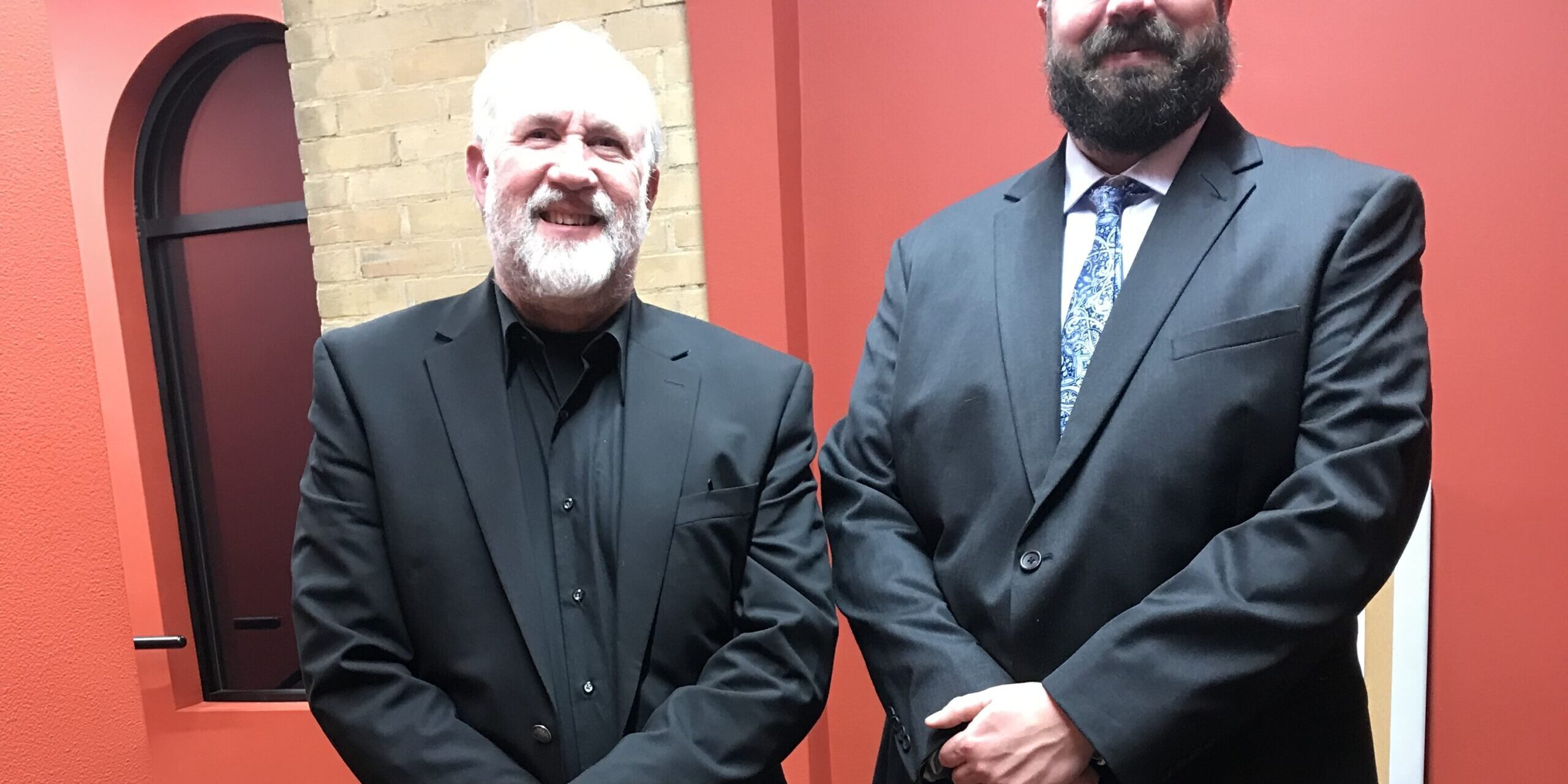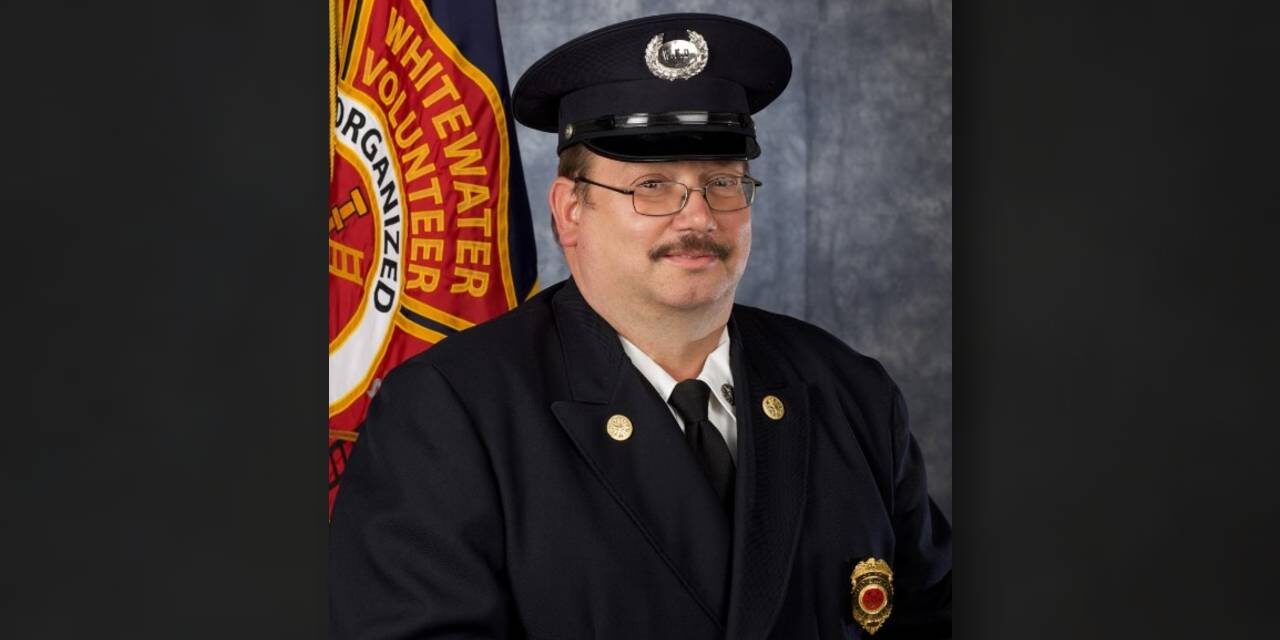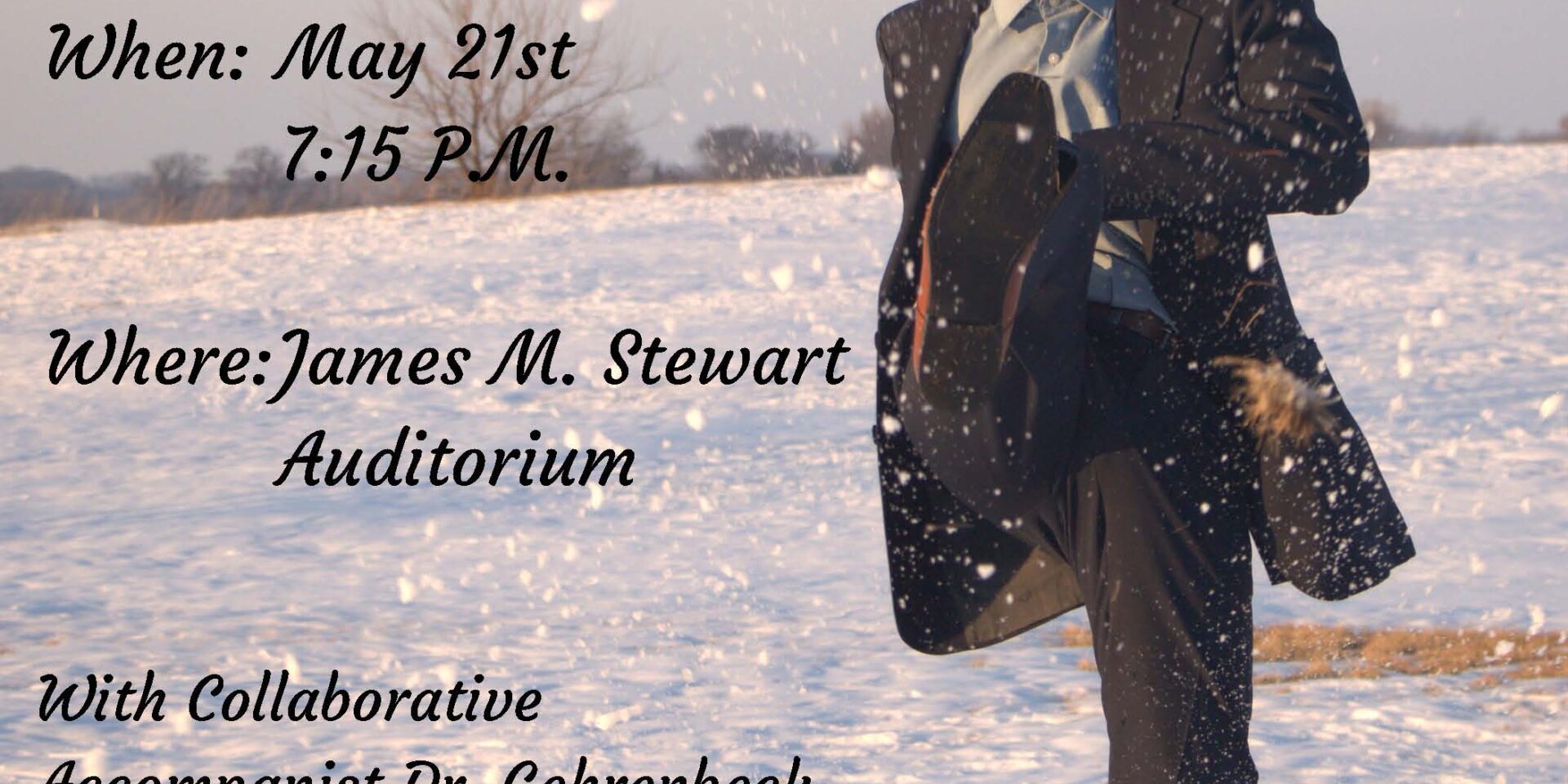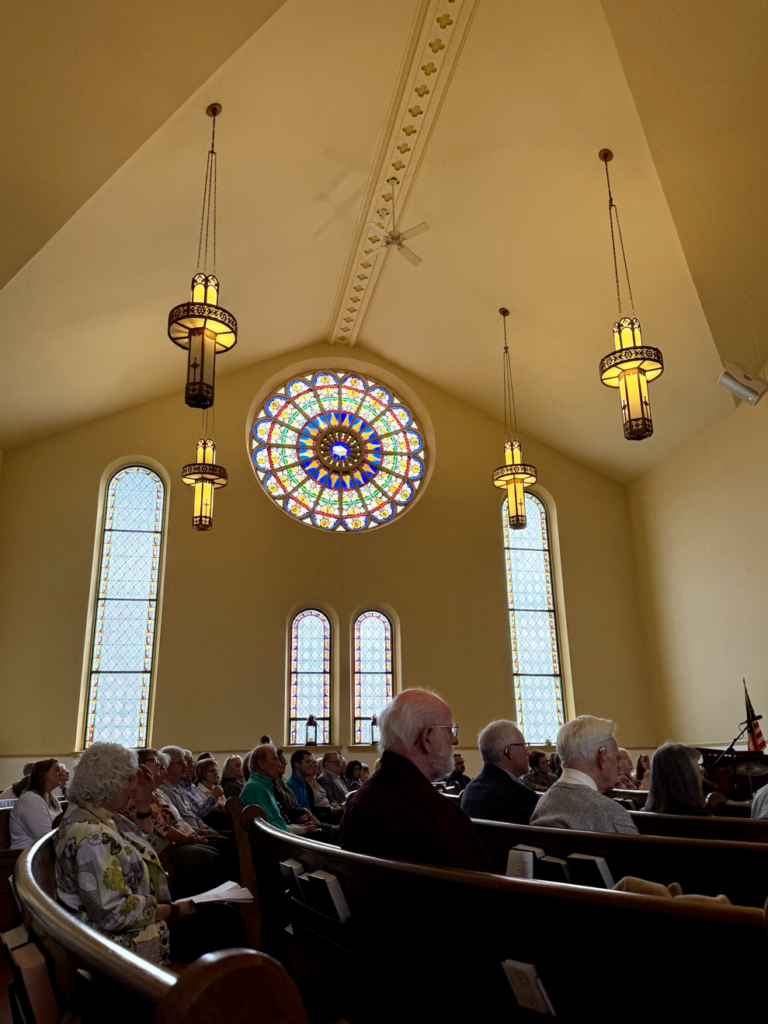
By Lacey Reichwald
As the last hymn echoed off the sanctuary walls, the members of Whitewater’s Congregational United Church of Christ (UCC) paused to take it all in — the 185 years behind them, the sense of community they shared, and the chance to build something lasting beyond the church doors.
Closing the church had been a hard decision. Like many congregations across the country, they faced a smaller group gathering each Sunday and an aging building that was too expensive to maintain. The idea of closing had come up over the years — sometimes quietly, sometimes more directly — but this time, everyone understood it was time. The congregation voted to disband and sell the property. One longtime member said, “My head knew it was right. But my heart hurt.” Another added, “It’s not the best — but it’s all good.”
Even through the sadness, one thing was clear: the church had always been more than a building. From its earliest days, it served the wider community, hosting city meetings, college graduations, and even basketball games. It helped launch Bethel House, which provides temporary housing for families in crisis, and the Clothes Closet, a precursor to today’s Community Space. Its kitchen turned out free weekly spaghetti dinners that fed college students and longtime residents alike.
That legacy shaped what came next. With the building sold, the congregation turned their attention to how the church’s remaining funds could be used to carry on its mission. “Anytime there’s change or closure, emotions run high,” one member said. “But these conversations about what to do with the church’s money sparked real thinking. And they helped us get through the emotional part, knowing we could still have an impact beyond the closing.”
Months before the final service, members gathered in the Fellowship Hall to decide what to do next. They filled the walls with the names of local charities and community groups, then voted with bright sticky dots to determine where the church’s final gifts would go.
The mood in the room was surprisingly upbeat. With a mix of reflection and purpose, members were energized by the chance to give one last gift together. When the votes were tallied, two organizations stood out: Fairhaven, a senior living community with deep ties to many members, and Bethel House, whose work had long been supported by the church.
But the giving didn’t stop there. Wanting to honor each member’s voice and recognize that the church’s resources had come from those very members over the years, the congregation designated $1,000 for each active member to direct toward a cause of their choice.
Some directed their funds to the Community Space, a center that offers free food, clothing, furniture, and essentials to anyone in need. Others supported the Whitewater Arts Alliance, which promotes local artists and cultural programming, or the Whitewater Community Foundation, which provides scholarships and supports community projects. Still others looked farther afield, as in one member’s gift to a Haitian relief organization. Each gift reflected personal convictions, rooted in the shared values of service and compassion.
The sale itself came quickly. A former Whitewater resident, confirmed in the church 40 years before, purchased the building and promised to preserve key parts of its mission. The Bethel House office remains. The community dinners continue. The kitchen, bustling with volunteers and laughter, will still feed the town.
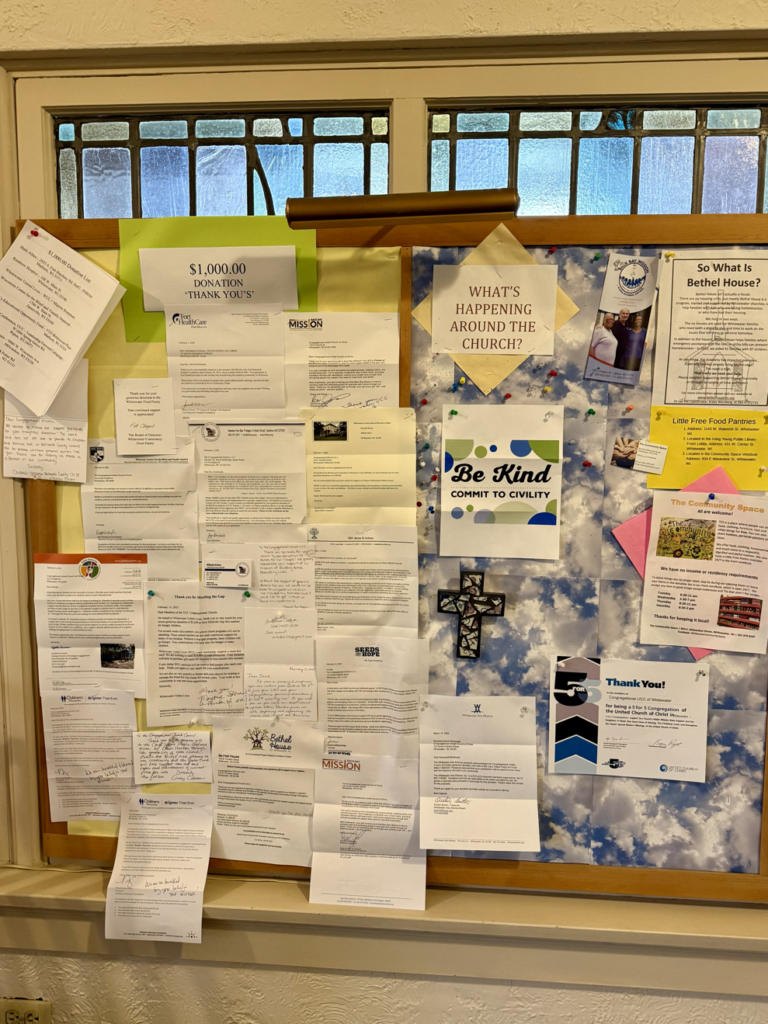
On the last Sunday in April, the congregation gathered one final time. Pinned to the big bulletin board, alongside church newsletters and fading flyers, were bright thank-you notes from the groups they had supported. Members stopped to read them, smiling at the evidence that their final gifts were already making a difference.
Many members of Whitewater’s UCC have found new church homes in the surrounding area, while others have found their sense of community in different ways. All agreed that the church was never just a building anyway—it was a shared spirit of worship and giving. As the pastor said in his closing sermon, “You don’t need a pastor and these four walls to do what is right.”
The church may have closed its doors, but the work and the spirit behind them live on.







